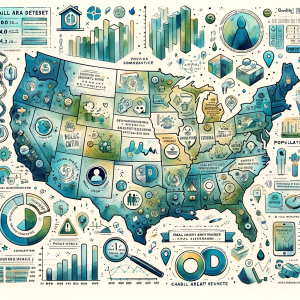
PLACES Dataset Featured in the New R Package
The PLACES dataset significantly advances public health data analysis and accessibility. Originating from the 500 Cities Project, which began in 2015, PLACES (Population Level Analysis and Community Estimates) is an initiative by the Centers for Disease Control and Prevention (CDC), in collaboration with the Robert Wood Johnson Foundation and the CDC Foundation. This innovative project […]
Read more →










